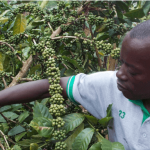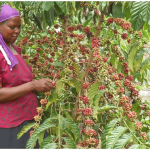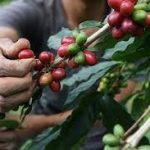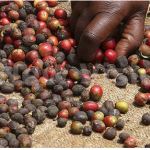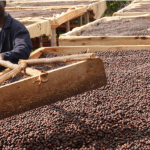Not long time ago, rice was perceived as a crop grown on a large scale in places like Kibimba [in Bugiri District]. But with introduction of a number of upland varieties, rice has been widely adopted by farmers.
In some parts of the country, it has become a preferred cash crop.
Available data by Africa Rice, a pan-African research organisation, indicates that the introduction of New Rice for Africa (Nerica) variety challenged the traditional varieties. Farmers appreciate it for its hardiness, high yield and shorter maturity period.
Nerica includes a group of 18 upland rice varieties developed by the CGIAR Consortium with Africa Rice and various partners in different countries including National Agricultural Research Organisation (Naro) in Uganda.
In Uganda, several Nerica varieties were introduced in 2002. By 2009, the area planted with upland rice has increased from 1,500 to more than 50,000 hectares.
Triple production
Contrary to West Africa, where rice is grown as staple food, for farmers in East Africa it is more of a cash crop.
Dr Ambrose Agona, director general, Naro, while explaining the status of rice production, said Ugandan farmers stand a chance to benefit in the global rice value chain.
This was during the Africa Rice’s Council of Ministers meeting, held February 6 in Kampala.
He noted that in Uganda the yields obtained are a third of the total demand.
This is attributed to poor agronomic practices and factors such as pest and diseases. There is also fluctuation in rice production.
Despite the fact that farmers use less fertiliser, they are harvesting significant quantities of rice.
However, researchers advise them to use fertiliser to boost soil fertility for better output.
Also, Naro plans to form a task force to seek ways to promote mechanisation and processing.
The National Crop Resources Research Institute (NaCRRI) in Namulonge, has received germplasm from Africa Rice for improved varieties.
But, in general, figures show African countries have tripled production. There is an increase of 40 per cent against a 20 per cent consumption rate. There is a 14 per cent decline in rice imports from leading rice growing countries such as Vietnam.
Tress Buchanayandi, minister of Agriculture, who currently chairs the Council of Ministers, observed that rice is an important food security crop in Africa.
Therefore, there was the need for more farmers to engage in growing rice. The current global rice market potential is $5b (Shs14.37t).
Thus, African countries are encouraged to favourably compete for this market in a bid to increase farmer incomes.
Thus, farmers are urged to use improved seed as well as fertiliser plus good agronomic practices to achieve higher yields.
Dr Jimmy Lamo, who heads rice research at NaCRRI, said since 2002, his team released several upland varieties.
These include Nerica 1, Nerica 2, Nerica 4 and Nerica 7. In 2013, varieties named Namche 1 to 4 were released. These varieties mature in 100-130 days depending on the variety.
Cooperation
Traditional rice varieties, which grow in wetlands, were grown by schemes such as Kibimba Rice Scheme.
And many farmers were growing both upland and lowland rice therefore the need for these improved varieties.
The team, which has been conducting research since 2010, were in position to release four varieties that grew in wetlands.
The main disease, which is a challenge to farmers around the globe is the rice yellow mottle. Farmers have been relying on Kibimba rice varieties, the K series, which has since succumbed to the disease.
The varieties obtained from Africa were mainly WITA 9 rice varieties from West Africa, two varieties from Tanzania and others from the International Rice Research Institute (Irri) breeding centre in Mozambique.
These varieties were released with the following names, Irri 1, GSR007, Nerica 6, which is tolerant to yellow mottle disease, Irri 522 released in the brand name Comboka.
Africa Rice has also given scholarship opportunities to scientists in Uganda.
One of them got a PhD, three obtained Master’s degrees and several attained certificates in rice breeding related areas.
Incoming Africa Rice director general, Dr Harold Roy-Macauley, said he will emulate his successor, Dr Papa Abdoulaye in promoting transparency, equity, scientific excellence, strengthening of National Agricultural Research Systems.
Following this will call for repositioning Africa in the global rice industry to capture a substantial part of the market.
From Daily Monitor

